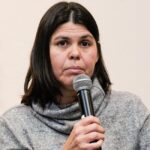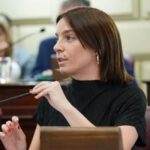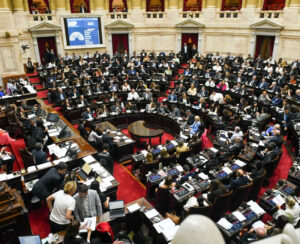
La Dirección de Aduanas intimó a las empresas por haber llevado adelante maniobras a través de las cuales abonaron menos retenciones por exportaciones de soja previamente importadas desde Paraguay.
La Dirección de Aduanas intimó a las empresas Cofco, Cargill, Bunge y Dreyfuss de haber llevado adelante maniobras a través de las cuales abonaron menos retenciones por exportaciones de soja previamente importadas desde Paraguay, por un monto total estimado en algo más de u$s50 millones.
Fuentes de la dependencia que conduce Guillermo Michel confirmaron que “tras una investigación, Aduana intimó a estas cerealeras por más de 50 millones de dólares”.
La operatoria empleada por las firmas agroexportadoras consistía en reducir la base imponible del cálculo de los derechos de exportación sobre soja importada bajo el régimen temporal de Paraguay. El período que comprendido por la intimación corresponde a los años 2020, 2021 y 2022.
Lo valores que la Aduana le reclama a Cofco ascienden a US$ 14,7 millones; US$27 millones a Cargill; US$7 millones a Bunge; y US$3,7 millones a Dreyfuss.
“Desde la Aduana se sigue monitoreando a todo el mercado de los exportadores de cereales, para saber si el resto de las firmas aplicaron la misma lógica de cálculo”, señalaron las fuentes.
Los derechos de exportación de soja procesada, sea importada o nacional, se calculan en base al precio de la tonelada FOB, que representa el valor de la mercancía puesta a bordo de un transporte marítimo.
La ley 21453, de normas de exportación para productos agrícolas, aclara que en ambos casos se aplica, para calcular los derechos de exportación, precio oficial y tratamiento arancelario vigente a la fecha del cierre de venta informada por el declarante ante la Subsecretaría de Mercados Agropecuarios.
Mientras que el decreto 1177 del año 1992 agrega que al oficiar el precio oficial como base única de tributación, no corresponde realizar deducción alguna sobre dicha base.
La operatoria de las cerealeras intimadas consistió aplicar el decreto 1330 del año 2004 al momento de declarar la importación temporal de soja paraguaya.
De manera complementaria tomaban en cuenta una nota del año 2002 de la Dirección de Mercados Agroalimentarios, para reducir la base de tributación.
Desde Aduana subrayaron que la normativa que emana del decreto 1177/02 es específica para la importación temporaria de mercaderías que serán destinadas a recibir un perfeccionamiento industrial, con la obligación de exportarlas para consumo.
“En concreto, al precio oficial le descontaban el porcentaje de retenciones a las exportaciones y recién sobre el número resultante de esa cuenta volvían a aplicarle la alícuota de derechos de exportación. Es decir, modificaban la base imponible, hacia abajo, para calcular retenciones”, señalaron las fuentes. Para la Aduana “la importación temporal de soja es una medida acertada siempre que permita tener en funcionamiento, y potenciar, la capacidad industrial del polo agroexportador argentino y mejorar el valor agregado”.
Desde el organismo sostienen que “esto no puede implicar que se aplique a un régimen de excepción creado en el 2004 (régimen de importación temporal del Decreto 1330) un criterio técnico de la vieja Secretaria de Agricultura del año 2002” ya que consideran que “no tiene sentido económico ni sustento legal que esté en mejores condiciones -respecto de la base de tributación de derechos de exportación- la exportación de derivados de soja temporal respecto de la exportación de derivados de soja de los productores argentinos”.
En 2018, se importaron de Paraguay 5,8 millones de toneladas, en 2019 bajó a 3,8 millones de toneladas, producto de la caída en la producción previa, lo que obligó a importar más en los años siguientes, que son precisamente los que Aduanas investigó y sobre los que intimó a Cofco, Cargill, Bunge y Dreyfuss.
Four cereal companies warned by Customs for tax evasion maneuvers
The Customs Directorate has notified the companies for having carried out maneuvers through which they paid less withholding taxes on soybean exports previously imported from Paraguay.
The Customs Directorate has warned Cofco, Cargill, Bunge and Dreyfuss companies for having carried out maneuvers through which they paid less withholding taxes for soybean exports previously imported from Paraguay, for a total amount estimated in more than US$ 50 million.
Sources of the agency headed by Guillermo Michel confirmed that “after an investigation, Customs intimated these grain companies for more than 50 million dollars”.
The operation used by the agro-exporting companies consisted in reducing the taxable base of the calculation of export duties on soybeans imported under the temporary regime of Paraguay. The period covered by the injunction corresponds to the years 2020, 2021 and 2022.
The values claimed by Customs to Cofco amount to US$ 14.7 million; US$ 27 million to Cargill; US$ 7 million to Bunge; and US$ 3.7 million to Dreyfuss.
“Customs is still monitoring the whole market of cereal exporters to know if the rest of the companies applied the same calculation logic”, the sources pointed out.
Export duties on processed soybeans, whether imported or domestic, are calculated on the basis of the price per ton FOB, which represents the value of the goods placed on board a maritime transport.
Law 21453, on export regulations for agricultural products, clarifies that in both cases the official price and tariff treatment in force at the date of the closing of the sale reported by the declarant to the Undersecretariat of Agricultural Markets is applied to calculate the export duties.
Decree 1177 of 1992 adds that since the official price is the sole basis for taxation, no deduction whatsoever may be made on such basis.
The operation of the grain companies that had been notified consisted of applying Decree 1330 of 2004 at the time of declaring the temporary importation of Paraguayan soybeans.
In a complementary manner, they took into account a note of 2002 from the Directorate of Agri-Food Markets to reduce the tax base.
From Customs they emphasized that the regulation emanating from decree 1177/02 is specific for the temporary import of goods that will be destined to receive an industrial improvement, with the obligation to export them for consumption.
“Specifically, the percentage of export withholdings was deducted from the official price and then the export duty rate was applied to the resulting amount. That is to say, they modified the taxable base, downwards, to calculate withholdings”, the sources pointed out. For Customs “the temporary import of soybeans is a wise measure as long as it allows to have in operation, and enhance, the industrial capacity of the Argentine agro-exporting pole and improve the added value”.
From the agency they argue that “this cannot imply applying to an exception regime created in 2004 (temporary import regime of Decree 1330) a technical criterion of the old Secretary of Agriculture of 2002” since they consider that “it does not make economic sense or legal support that it is in better conditions -with respect to the taxation base of export duties- the export of temporary soybean derivatives with respect to the export of soybean derivatives of Argentine producers”.
In 2018, 5.8 million tons were imported from Paraguay, in 2019 it dropped to 3.8 million tons, product of the drop in the previous production, which forced to import more in the following years, which are precisely those that Customs investigated and on which it intimated Cofco, Cargill, Bunge and Dreyfuss.














1 thought on “Cuatro cerealeras intimadas por Aduana por maniobras para evadir retenciones”
Comments are closed.